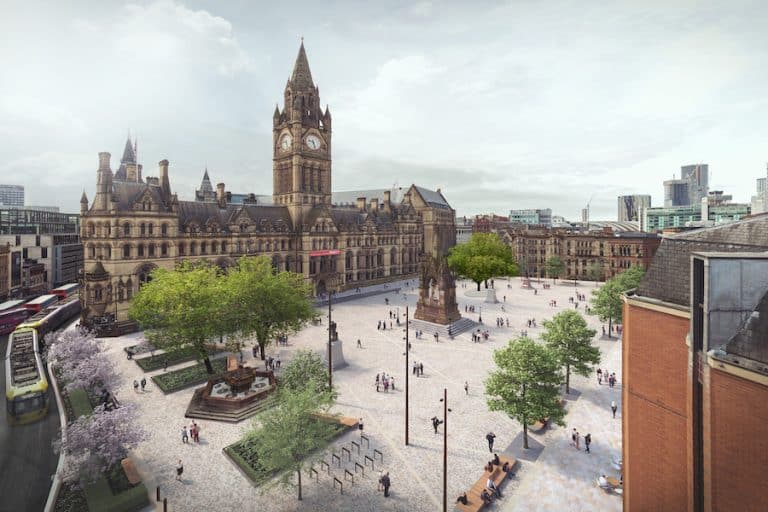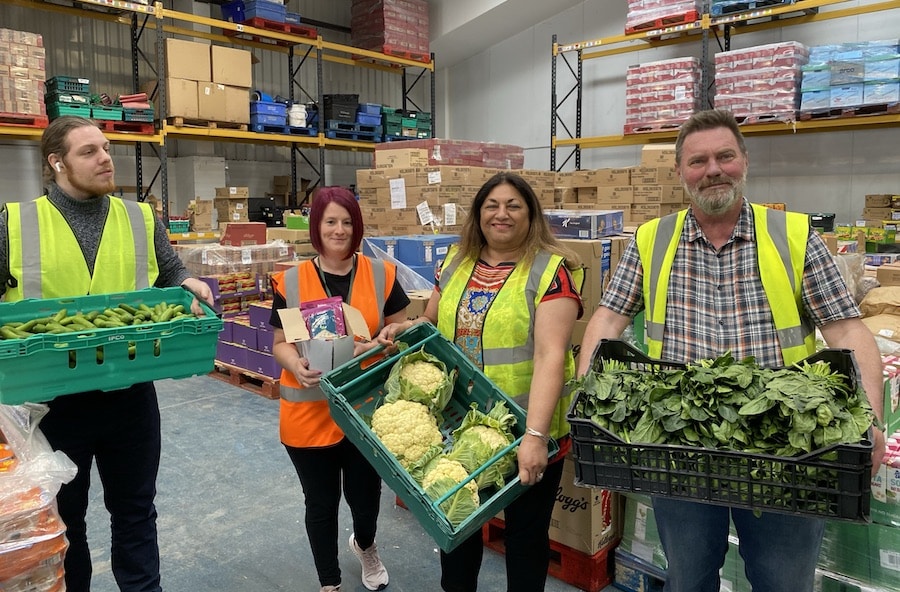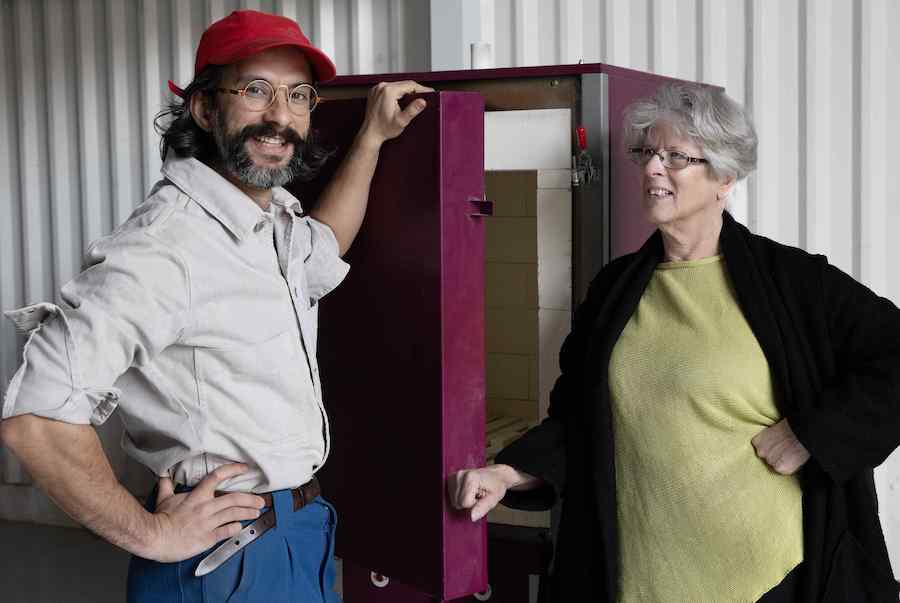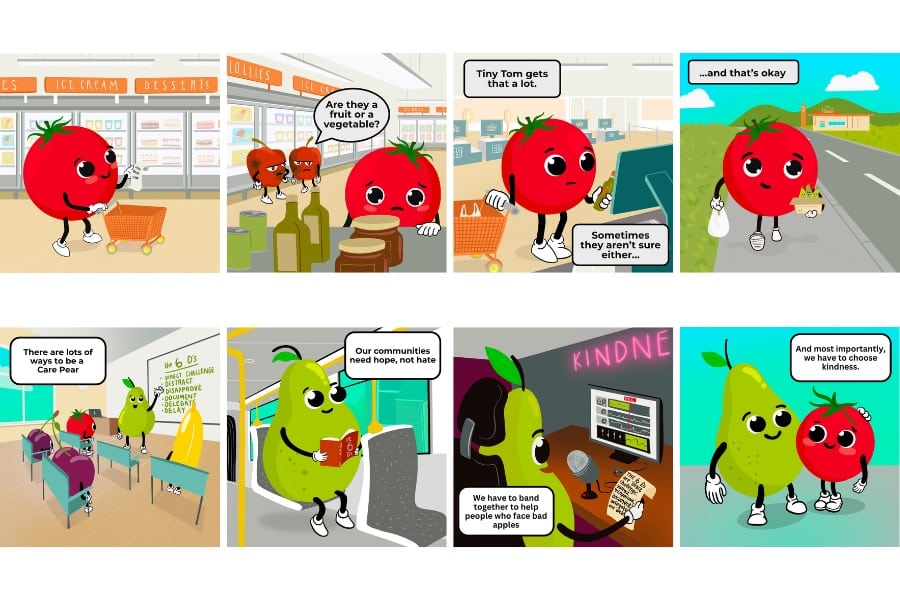How Manchester businesses can cut waste and fight climate change
- Written by I Love MCR
- Last updated 2 months ago
- Business, City of Manchester, Sponsored

Households in the UK produce an estimated 400kg per person, per year, that’s more than a kilo per person, per day on average and does not even consider what is produced by businesses both large and small.
Businesses across the country struggle to shake off the bin loads of single-use packaging, containers, wrappings, boxes, food waste, excess items, plastics and whatever else is necessary to keep the doors open.
It’s all too easy to forget about what happens to it all once it’s round the back, in the bins.
Click here for more details on UK household waste
Unfortunately, the way we produce rubbish and handle the disposal of said rubbish, has a major impact on the fight against climate change; so what, if anything, can we do to make a difference?
Manchester and proud
Certain areas of the UK are taking matters into their own hands and are successfully reducing their output, the Greater Manchester area being one of them.
With an estimated 50% of waste being recycled across Manchester it puts the city amongst the very best in the country and 5% above the national average.
You can read more about that by clicking here
However, before we get too proud, it’s worth remembering that some other countries in Europe are hitting a 70% (or more) recycling rate.
With this in mind, we’re going to take a look at what we can do as business owners to improve our city, country and planet’s chances in the fight against global warming, and what your business can do without too much difficulty, or expenditure, to contribute to the cause.
Improve inventory & stock management
Whilst it is essential to be at least a little bit organised when running your own business, the lengths of your organisation and stock management can make all the difference in reducing your overall waste; not to mention helping you save a pretty penny along the way.
Poor purchasing leads to waste in all walks of life, but for your business, it can mean huge wastage and unnecessary expenditure.
The better your inventory and purchasing management, the better your ability to avoid waste; this is an important step for those running businesses in the UK, not just Manchester.
Find out more here
With superb stock management, you’ll be able to eliminate over-ordering, minimise spoilage and figure out exactly what it is you need to deal with each piece of packaging that comes through your door.
Shop local
We are all familiar with the global mega-corporations that can deliver things to your door in a matter of hours, and just how convenient this service can be when you’re in a pinch.
Despite the convenience of these services, we should be considering the impact these large companies have. The carbon they produce in order to deliver our items to us, and how we can avoid being a part of this consumerist machine.
The carbon that is produced by lorries on the motorways, delivery vans in our neighbourhoods, ships in the sea and planes in the sky on a global scale is quite shocking.
Attempting to work with as many local providers and UK producers of goods as possible can be a wonderful way to cut down on your waste and reduce your carbon footprint considerably.
One Person’s trash is another person’s treasure

Manchester is an incredibly progressive city, so it should come as no surprise that you have plenty of options available to you and your waste.
Resources designed to encourage as many businesses as possible to utilise the fantastic recycling tools that the city has put in place are abundant, so make sure you seek them out.
There are initiatives for all the major waste areas, from clothes and plastic packaging to methods of getting rid of your old tech and unused gadgets.
Want to learn more? Click here
So much can be done with items that we may deem unusable, so instead of chucking out things you don’t need, do some research and see if they can be given a new lease of life with one of the superb Manchester waste management schemes.
Donate to good causes
If you are a high-volume food outlet, a fast-moving fashion brand, or any other number of local businesses, you can’t always avoid mistakes; it’s part of being human after all.
Even the most thorough and diligent stock management systems can’t help you on an unexpectedly quiet weekend.
Sometimes we just have stuff left over and there is nothing we can do about it; whether it’s unsold food stuff, out-of-season clothing or accidentally ordered overages, you’ll find that there will usually be someone who will gladly accept it.
Charities like Smart Works specialise in giving unemployed women the chance to have an interview coaching session and get into an interview-appropriate outfit, giving them the best possible shot at getting a job when times are at their toughest.
You can also make use of the multiple food banks around the city to ensure that your leftover food items aren’t being added to the copious rubbish collection Manchester already endures.
Want to find out more about Smart Works? Check out their website here
Compost your problems away
Composting is a bit of a trendy solution for a lot of waste-based problems at the moment, and for good reason.
Creating your own compost is an easy and effective way to make your unwanted food scraps disappear, and to boost the overall health of your garden, vegetables and house plants. And I know what you’re thinking, this does not apply to your business if you don’t have a garden or don’t grow anything; but actually, it does apply to everyone in the city.
The council will collect compost from your home or business with the view of using it for local projects or donating it to charities, creating something of a circular economy.
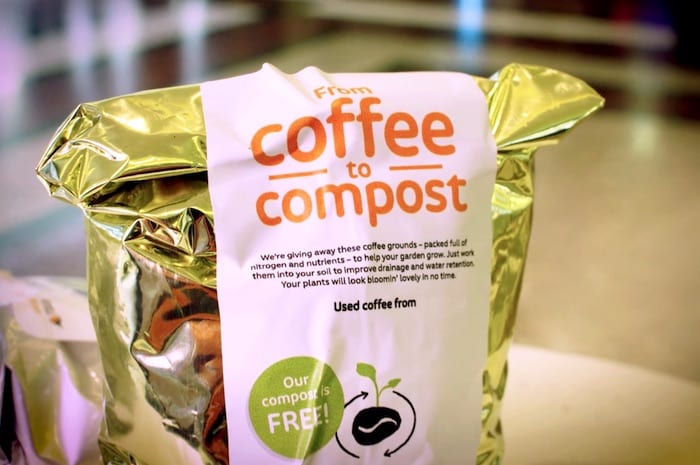
Local coffee shops are offering gardeners their leftover coffee grounds after studies show that a staggering 500,000 tonnes of coffee make their way to the landfill every year in the UK; which is even more maddening when you find out that coffee compost is one of the very best things for gardens and plants!
Start a compost and give it to a neighbour, see if a local allotment garden will take it, or check online to see if there is anything that can be done with your food waste.
Make the most of the digital world
If you haven’t already, making the switch to a totally paperless system can make a huge difference to your overall waste output.
Even things like receipt rolls for your till will come in their own packaging, will be delivered by a man in a van, and will more often than not be thrown away immediately by the end user. Switching to a completely paperless system, offering email receipts and eliminating the need to print things and use paper will make an awful lot of difference in the long run.
Utilise your employees
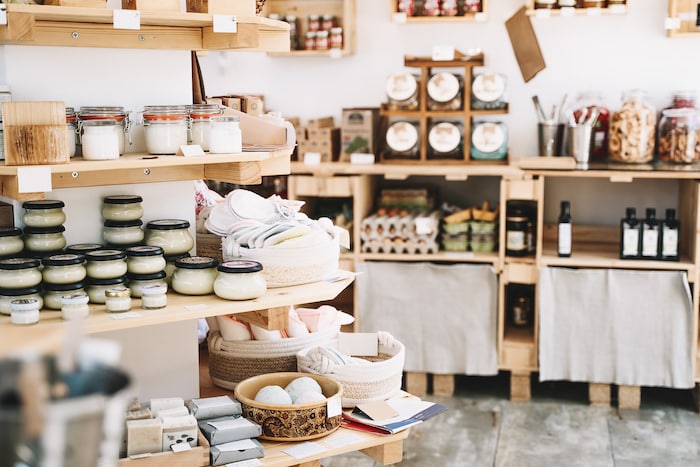
No matter what kind of business you operate, your staff are the most important cog in the entire machine; without them, nothing works.
Training staff and allowing them to take charge of the waste produced by your business could be the difference between having an impact, or fumbling the entire plan, but they can’t do it without your help.
Ensuring they have the correct tools to manage the waste that’s produced properly is an important first step, but giving them the knowledge and power to execute your waste management plan to its greatest extent is your best option.
Manchester is actually home to more than 20 eco-friendly stores that all specialise in no-waste, sustainable processes and planet-conscious items, so if you want some tips, don’t be afraid to pop in and ask!
Sustainable Manchester
So there you have it, 7 tips that will help you to cut down on the waste produced by your business in 2025.
Following these tips will allow your business to be more sustainable and reduce its impact on the planet, joining many others in Manchester and beyond.
None of these are expensive options, although a couple will incur a small cost, so there should not be many obstacles in your way as you march toward a sustainable future for our city, and maybe even begin to think about becoming carbon-zero.
Make the most of what Greater Manchester has to offer and ensure it has a bright future for many years to come.
- This article was last updated 2 months ago.
- It was first published on 26 September 2024 and is subject to be updated from time to time. Please refresh or return to see the latest version.
Did we miss something? Let us know: [email protected]
Want to be the first to receive all the latest news stories, what’s on and events from the heart of Manchester? Sign up here.
Manchester is a successful city, but many people suffer. I Love Manchester helps raise awareness and funds to help improve the lives and prospects of people across Greater Manchester – and we can’t do it without your help. So please support us with what you can so we can continue to spread the love. Thank you in advance!
Got a story worth sharing?
What’s the story? We are all ears when it comes to positive news and inspiring stories. You can send story ideas to [email protected]
An email you’ll love. Subscribe to our newsletter to get the latest news stories delivered direct to your inbox.
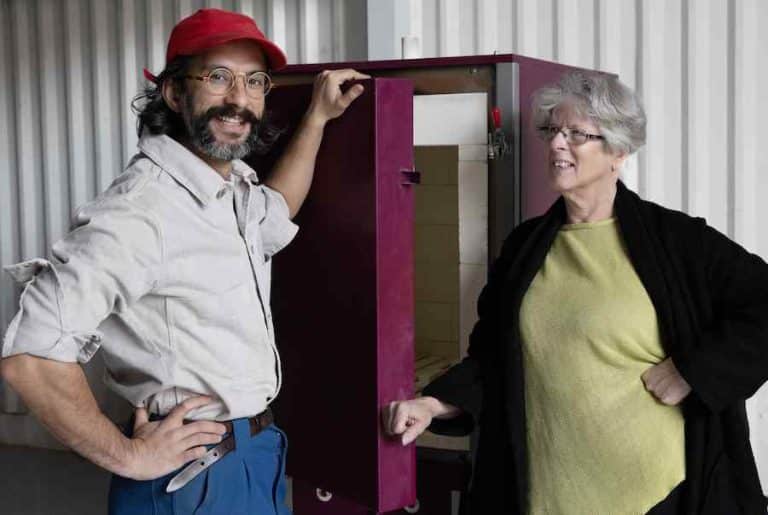
Rooted in family, grown in the community – the family business inspiring potters for 25 years

Bolton’s own West End star plays scrooge in timeless Christmas classic
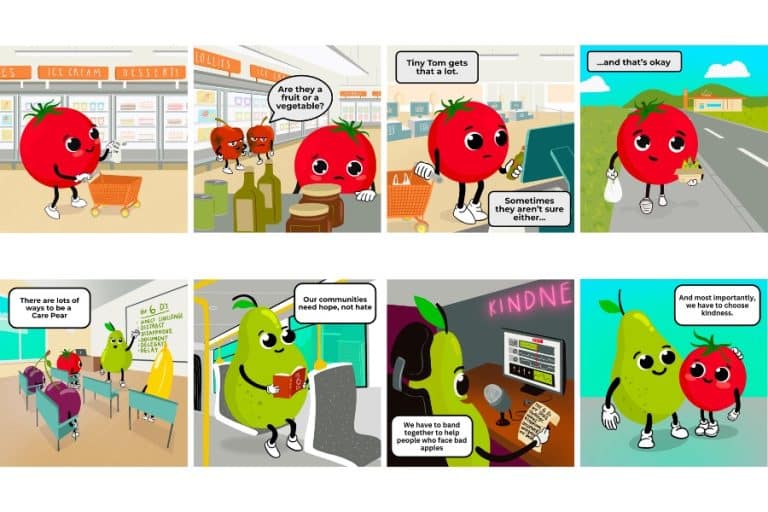
Meet the pear, tomato and banana who are changing the way we fight hate crimes in Manchester

The failed utopian housing project that became a bohemian counterculture ‘paradise’

Escape to the Aegean this Winter with chef Zisis Giannouras at Fenix
